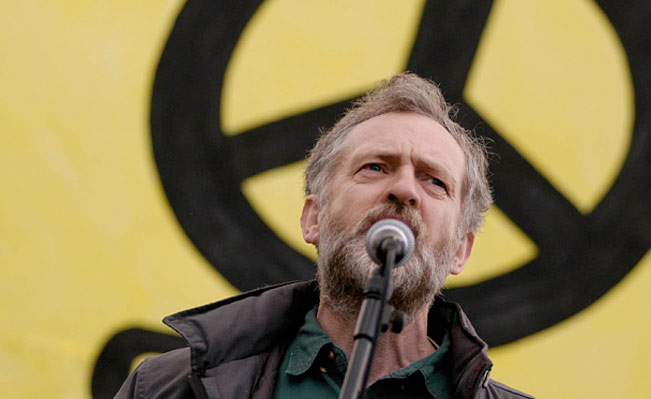 Labour MP Jeremy Corbyn
Labour MP Jeremy Corbyn
Jeremy Corbyn’s announcement that he will stand for Labour leader has bolstered the anti-austerity movement. But will the trade unions back him, too?
With the Tories running amok, trying to slash and burn everything in sight, you might hope the “opposition” Labour Party might do a bit of opposing. Far from it. The newspapers and TV are stuffed full of the leadership contenders and their supporters telling the world “We didn’t deserve to win. We were crap. We were not Tory enough. Vote for me, I’m more Tory than him/her (delete according to choice).”
And then Jeremy Corbyn threw his hat into the ring. At last, a breath of fresh air. An MP who has a history of standing alongside campaigners against cuts, bigotry and discrimination. At least he will be someone the trades unions can throw their weight behind! Well, not quite.
Unite (the country’s biggest union, and Labour’s biggest financial backer) is remarkably coy about announcing support for Corbyn. Various arguments are deployed, from “He’s not actually on the ballot paper yet” to “It would be the kiss of death for Unite to back any candidate (it would be nice if they had asked Jeremy if he wanted their support instead of deciding for him!).”
This is relevant to two other decisions that Unite’s national executive took this month: with the union’s Rules conference coming up next month, the executive decided to oppose those motions deleting exclusive support to Labour in elections.
With similar motions attracting the support of half of the delegates compared to 4 years ago, it is an optimistic executive that believes the anger and disillusionment has diminished in the meantime. If Corbyn had been excluded from the leadership contest, there would be no chance of the executive holding the line.
The second decision was to support a motion probably giving rather than according the Scottish region the right to decide its own industrial and political strategy (although bound by general Unite policy). Given the wholesale slaughter of Labour in Scotland, and the mass defection of votes (and members) to the SNP, this can only mean an increasing slant towards conversation with the SNP. Perhaps Unite is pinning its hopes on the formation of a separate Scottish Labour Party, which if it learnt nothing from the 2015 wipeout, would at least mean the fig leaf of Unite supporting left SNP candidates not actually being in breach of rule, whether Unite’s or Labour’s rulebook.
When you have to resort to finagling like this, you’re in danger of losing the plot.
So thank goodness Unite remains firm in its intention to oppose austerity on the streets (whilst supporting an “austerity-lite” party at the polls). As long as it helps build the movement in practice, so it helps build a political challenge increasingly at odds with the Labour Party leadership. If it comes to a contest between backstabbing Blairites and a self-confident mass movement, it will be on terms favourable to the movement. But Unite must eventually make a choice. It can’t fudge forever.
This article first appeared in issue 002 of Counterfire’s new free paper. Contact us for copies to distribute in your area.

